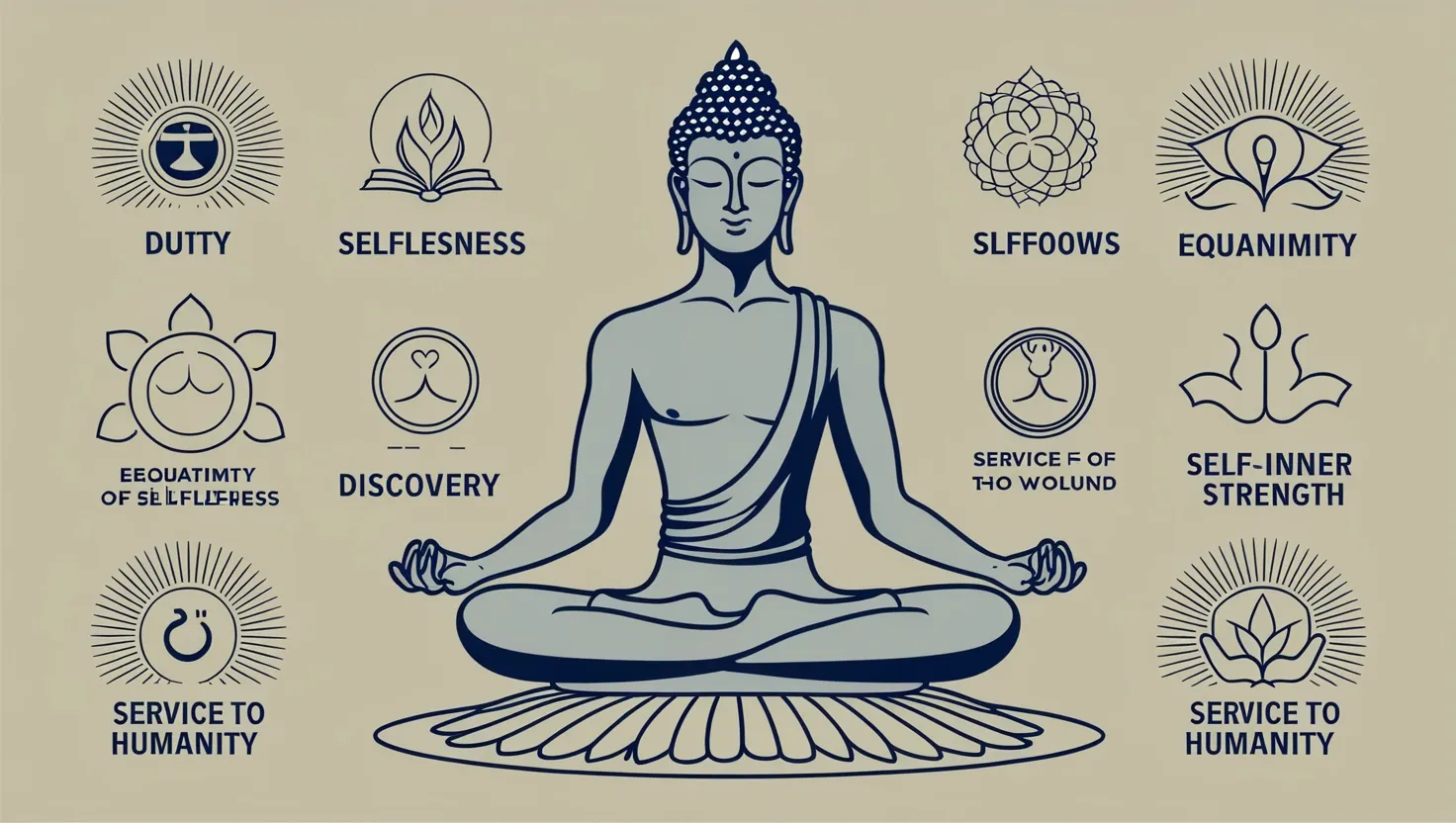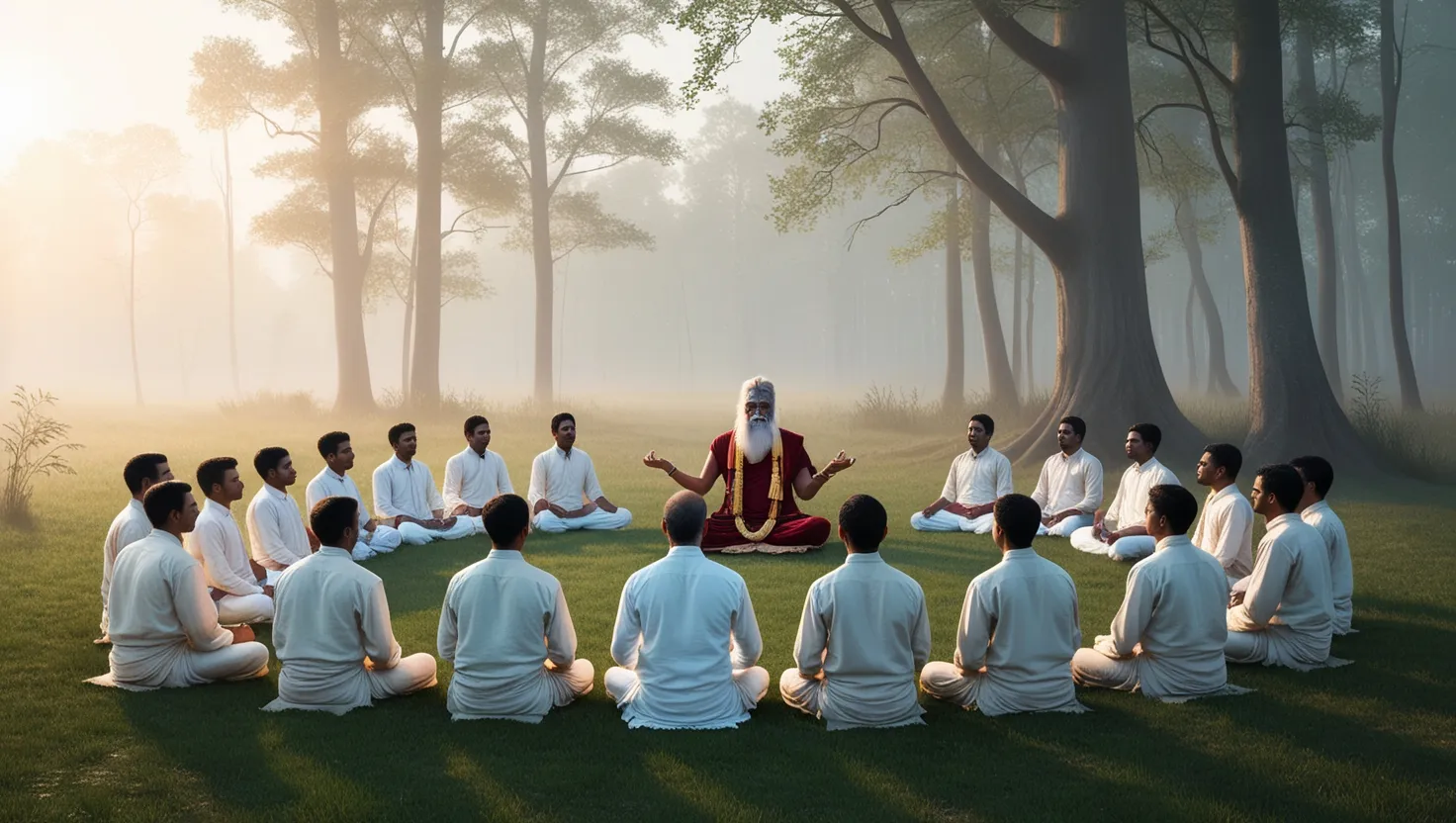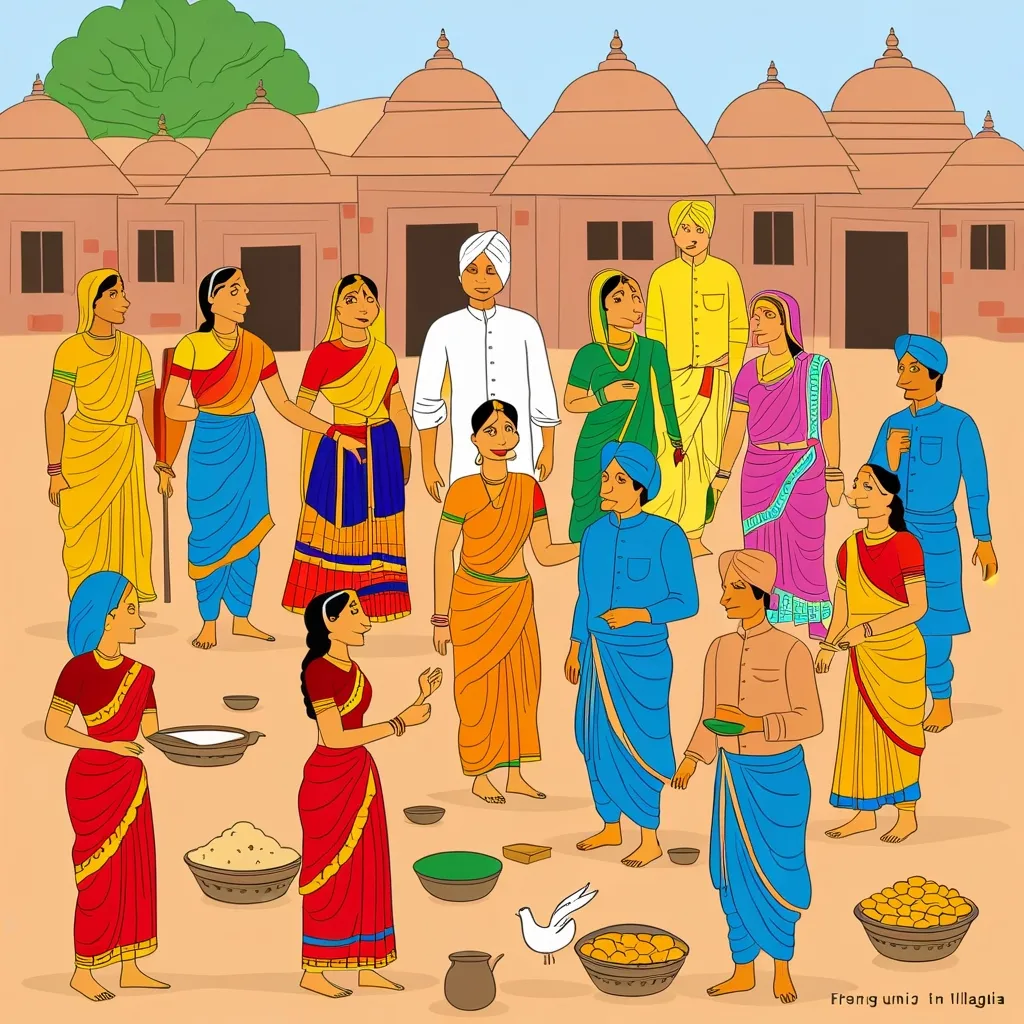In the midst of our fast-paced, often chaotic modern lives, it’s easy to feel lost and disconnected from the world around us. However, there is a timeless source of wisdom that can guide us through these challenges: the Bhagavad Gita. This ancient Hindu text, embedded within the epic Mahabharata, offers insights that are as relevant today as they were when it was first composed.
One of the most profound lessons from the Gita is the concept of dharma, or duty. This is not just about fulfilling obligations, but about understanding and honoring our individual roles in society. For Arjuna, the protagonist of the Gita, his dharma was to be a warrior, even if it meant facing his own kin on the battlefield. In modern life, this concept translates to our personal and professional responsibilities. Whether you are a parent, a colleague, or a community member, your dharma is about fulfilling your duties with sincerity and dedication.
Performing our duties without attachment to the outcomes is another crucial teaching from the Gita. This idea is encapsulated in the concept of Nishkama Karma, or selfless action. It means working diligently and honestly, not for personal gain or recognition, but because it is the right thing to do. In today’s outcome-driven world, this lesson is particularly valuable. It reminds us to focus on the process rather than the end results, leading to increased job satisfaction and productivity. Imagine approaching your work with a sense of purpose, knowing that the act itself is the reward, regardless of what follows.
Detachment from outcomes also leads to a state of equanimity, a key theme in the Gita. Equanimity is about maintaining a balanced and calm mindset, regardless of the ups and downs of life. This is not about being indifferent, but about being grounded in your inner self. The Gita teaches us to cultivate this equanimity by letting go of our desires for specific results and instead focusing on the right action. In a world where stress and anxiety are rampant, this lesson is a beacon of hope. It shows us that we can navigate life’s challenges with grace and inner peace, even in the most turbulent times.
Self-realization is another cornerstone of the Gita’s teachings. The text guides us on a journey of self-discovery, encouraging us to seek knowledge and understand the nature of reality. It teaches that true wisdom lies in recognizing the impermanence of the material world and the eternal nature of the soul. This realization can bring about a profound sense of inner peace and fulfillment. In a world where external validation often dictates our sense of worth, the Gita reminds us that true fulfillment comes from connecting with our divine essence. It encourages us to look inward, to understand who we truly are beyond the superficial layers of our identities.
Dealing with difficult emotions is a universal challenge, and the Gita offers valuable guidance here as well. Arjuna’s initial hesitation and self-doubt before the battle reflect the internal conflicts many of us face. The Gita advises us to tap into our inner strength and connect with our true nature to overcome these feelings. It encourages us to recognize the eternal soul within us, which is beyond birth and death, and to approach challenges with courage and conviction. This teaching is particularly relevant in today’s world, where mental health is a growing concern. It reminds us that we have the inner resources to overcome obstacles and live with confidence and fearlessness.
Finally, the Gita’s philosophy of selfless service, or Karmayoga, has the power to inspire positive social change and ethical leadership. By performing our duties without caring for the results, we contribute to the greater good. This concept extends beyond individual actions to societal responsibilities. It teaches us that true service is not about personal gain but about serving humanity. In a world where greed and materialism often dominate, the Gita’s message of selfless service is a powerful reminder of our collective responsibility. It inspires us to work towards the betterment of society, not for personal accolades, but because it is our duty to do so.
In conclusion, the Bhagavad Gita is more than just an ancient text; it is a living guide for modern life. Its teachings on dharma, detachment, self-realization, emotional resilience, and selfless service offer us practical wisdom for navigating today’s complexities. As we strive to find meaning and purpose in our actions, the Gita stands as a beacon of light, guiding us towards a more balanced, fulfilling, and spiritually aligned existence. Whether you are facing personal dilemmas, professional challenges, or societal issues, the timeless wisdom of the Bhagavad Gita can provide the clarity and strength you need to move forward with purpose and integrity.






